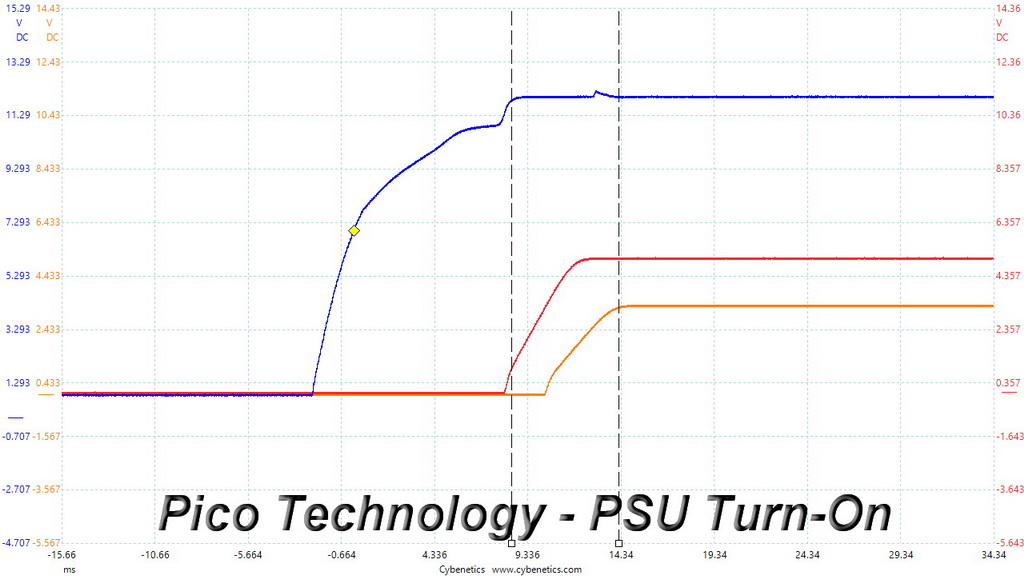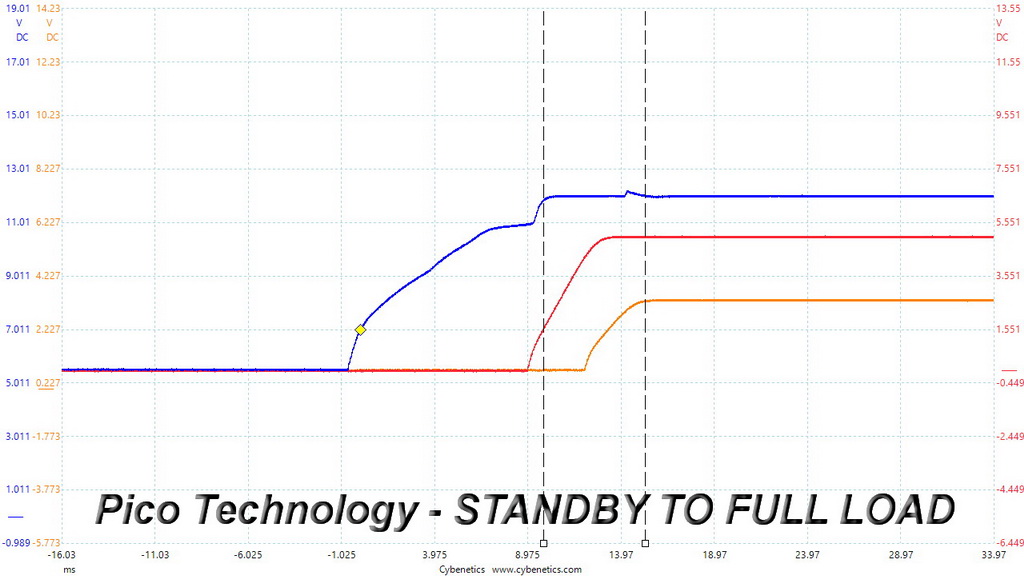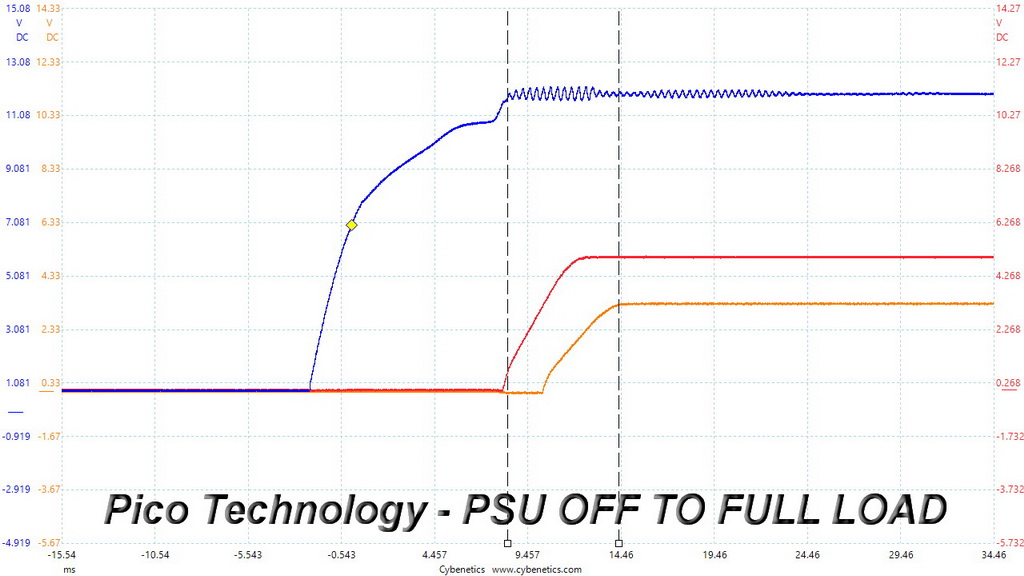NZXT E Series 850W PSU Review: An Analog Platform With Digital Enhancements
Why you can trust Tom's Hardware
Protection Features & DC Power Sequencing
Protection Features
Check out our PSUs 101 article to learn more about PSU protection features. Our protection features evaluation methodology is described in detail here.
| Protection Features | |
|---|---|
| OCP | 12V: 91A (130%), 12.157V 5V: 25.7A (128.5%), 5.023V 3.3V: 25.3A (126.5%), 3.33V 5VSB: 5.1A (170%), 5.005V |
| OPP | 1107.7W (130.32%) |
| OTP | ✓ (170°C @ 12V heat sink) |
| SCP | 12V: ✓ 5V: ✓ 3.3V: ✓ 5VSB: ✓ -12V: ✓ |
| PWR_OK | Operates properly |
| NLO | ✓ |
| SIP | Surge: MOV Inrush: NTC thermistor & bypass relay |
The over-current protection feature's triggering point at +12V, 5V, and 3.3V is properly set at 130% and below. While it's much higher at 5VSB, this is fine with us since we don't measure increased ripple and the voltage is within spec.
Over-power protection is right on target at 130%, while over-temperature protection gets activated once the +12V rail reaches 170°C.
The power-good signal is accurate, and inrush current protection includes an NTC thermistor and a bypass relay.
DC Power Sequencing
According to Intel’s most recent Power Supply Design Guide (revision 1.4), the +12V and 5V voltages must be equal or greater than the 3.3V rail’s output during power-up and normal operation.
For our first measurement, we turn the PSU off and switch it back on without any load. In the second test, we operate the PSU in standby mode, dial in a full load, and start the PSU. In the last test, while the PSU is completely switched off, we set a full load before restoring power.



There are no problems to report. The 3.3V rail is always at a lower voltage than the 5V and 12V rails.
Get Tom's Hardware's best news and in-depth reviews, straight to your inbox.
MORE: Best Power Supplies
MORE: How We Test Power Supplies
MORE: All Power Supply Content
Current page: Protection Features & DC Power Sequencing
Prev Page Efficiency, Temperature & Noise Next Page Cross-Load Tests & Infrared Images
Aris Mpitziopoulos is a contributing editor at Tom's Hardware, covering PSUs.